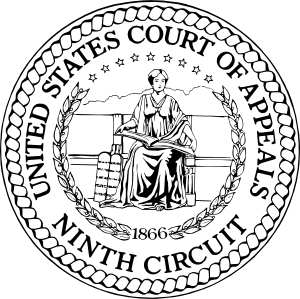 On September 8, an en banc panel of the U.S. Court of Appeals for the Ninth Circuit dismissed a civil suit filed under the Alien Tort Claims Act by five extraordinary rendition victims against a Boeing subsidiary, Jeppesen DataPlan, Inc. for its role in their rendition. [Amnesty International USA ; ACLU] The federal government intervened in the suit, arguing that any divulgence of information relating to Jeppesen’s work for the CIA would make public privileged information. The district court granted the government’s motion to dismiss. On appeal, a three-judge panel of the Ninth Circuit Court of Appeals reversed and remanded. An eleven-judge panel of the Ninth Circuit took up the case en banc, the majority then “reluctantly” concluding that the state secrets privilege applied and, on the facts of the case, required dismissal.
On September 8, an en banc panel of the U.S. Court of Appeals for the Ninth Circuit dismissed a civil suit filed under the Alien Tort Claims Act by five extraordinary rendition victims against a Boeing subsidiary, Jeppesen DataPlan, Inc. for its role in their rendition. [Amnesty International USA ; ACLU] The federal government intervened in the suit, arguing that any divulgence of information relating to Jeppesen’s work for the CIA would make public privileged information. The district court granted the government’s motion to dismiss. On appeal, a three-judge panel of the Ninth Circuit Court of Appeals reversed and remanded. An eleven-judge panel of the Ninth Circuit took up the case en banc, the majority then “reluctantly” concluding that the state secrets privilege applied and, on the facts of the case, required dismissal.
The five plaintiffs are non-U.S. citizens who were detained in Sweden, Pakistan, Gambia and Jordan before being rendered to Egypt, Morocco, and Afghanistan, where they allegedly suffered torture and inhumane conditions of detention. Several allege that they were sentenced to lengthy prison terms after giving false confessions under severe torture. Two of the plaintiffs, Binyam Mohamed and Bisher al-Rawi, were eventually transferred to Guantanamo, where they spent years in detention.
Unlike the district court, the circuit court relied on the privilege established in Reynolds (state secrets evidentiary  privilege) rather than on the Totten bar (barring adjudication where the very subject of the litigation is a state secret). The state secrets privilege is intended to protect information when “strictly necessary to prevent injury to national security”. See, e.g., Mohamed v. Jeppesen Dataplan, Case 08-15693, Slip Op. at 13538 (9th Cir. Sept. 8, 2010), quoting Ellsberg v. Mitchell, 709 F.2d 51, 57 (D.C. Cir. 1983). The effect of a sustained claim of the state secrets privilege is the excision of the protected evidence from the litigation. In Mohamed, the Ninth Circuit held that dismissal was required because the privileged evidence could not be separated from nonprivileged information, creating an “unacceptable risk of disclosing state secrets” were the case to continue. Id. at 13540 et seq. In spite of the hundreds of pages of nonprivileged documents offered into evidence by the plaintiffs (listed in the dissent’s appendix), the majority concluded that Jeppesen’s response to such evidence would require disclosure of privileged information. Id. at 13551-52. The majority also took note – on two occasions – that the Obama administration had revised the federal standards for invocation of the state secrets privilege and certified to the court its compliance with those standards in this case. Id. at 13528-29, 13552-53. [See Michael Isikoff’s critical Newsweek article on that issue here].
privilege) rather than on the Totten bar (barring adjudication where the very subject of the litigation is a state secret). The state secrets privilege is intended to protect information when “strictly necessary to prevent injury to national security”. See, e.g., Mohamed v. Jeppesen Dataplan, Case 08-15693, Slip Op. at 13538 (9th Cir. Sept. 8, 2010), quoting Ellsberg v. Mitchell, 709 F.2d 51, 57 (D.C. Cir. 1983). The effect of a sustained claim of the state secrets privilege is the excision of the protected evidence from the litigation. In Mohamed, the Ninth Circuit held that dismissal was required because the privileged evidence could not be separated from nonprivileged information, creating an “unacceptable risk of disclosing state secrets” were the case to continue. Id. at 13540 et seq. In spite of the hundreds of pages of nonprivileged documents offered into evidence by the plaintiffs (listed in the dissent’s appendix), the majority concluded that Jeppesen’s response to such evidence would require disclosure of privileged information. Id. at 13551-52. The majority also took note – on two occasions – that the Obama administration had revised the federal standards for invocation of the state secrets privilege and certified to the court its compliance with those standards in this case. Id. at 13528-29, 13552-53. [See Michael Isikoff’s critical Newsweek article on that issue here].
With regard to the plaintiffs’ possibilities for relief, the majority wrote:
Our holding today is not intended to foreclose — or to prejudge — possible nonjudicial relief, should it be warranted for any of the plaintiffs. […].
First, that the judicial branch may have deferred to the executive branch’s claim of privilege in the interest of national security does not preclude the government from honoring the fundamental principles of justice. The government, having access to the secret information, can determine whether plaintiffs’ claims have merit and whether misjudgments or mistakes were made that violated plaintiffs’ human rights. Should that be the case, the government may be able to find ways to remedy such alleged harms while still maintaining the secrecy national security demands. For instance, the government made reparations to Japanese Latin Americans abducted from Latin America for internment in the United States during World War II. See Mochizuki v. United States, 43 Fed. Cl. 97 (1999).
Second, Congress has the authority to investigate alleged wrongdoing and restrain excesses by the executive branch. “ […]
Third, Congress also has the power to enact private bills. See Nixon v. Fitzgerald, 457 U.S. 731, 762 n.5 (1982) (Burger, C.J., concurring) (“For uncompensated injuries Congress may in its discretion provide separate nonjudicial remedies such as private bills.”) […] When national security interests deny alleged victims of wrongful governmental action meaningful access to a judicial forum, private bills may be an appropriate alternative remedy.
Fourth, Congress has the authority to enact remedial legislation authorizing appropriate causes of action and procedures to address claims like those presented here. When the state secrets doctrine “compels the subordination of appellants’ interest in the pursuit of their claims to the executive’s duty to preserve our national security, this means that remedies for . . . violations that cannot be proven under existing legal standards, if there are to be such remedies, must be provided by Congress. That is where the government’s power to remedy wrongs is ultimately reposed.” Halkin v. Helms, 690 F.2d at 1001 (footnote omitted).
Id. at 13553-56 (internal citations omitted).
The Ninth Circuit’s decision is an interesting echo of the Second Circuit’s dismissal of Maher Arar’s suit against U.S. government officials alleging wrongful detention and torture in connection with his extraordinary rendition to Syria. While the Second Circuit did not reach the questions of qualified immunity or the state secrets privilege, the court placed primary importance on non-judicial remedies in the resolution of such cases, explaining that “if a civil remedy in damages is to be created for harms suffered in the context of extraordinary rendition, it must be created by Congress”. The U.S. Supreme Court recently declined review of the Second Circuit’s dismissal.
In their sharply worded opinion, the five dissenting judges argued that the majority’s holding was procedurally flawed, in that the plaintiffs’ allegations were sufficient to survive dismissal and the state secrets privilege should not have been used to prevent plaintiffs from proving (through non-secret evidence) the veracity of allegations “that any reasonable person would agree to be gross violations of the norms of international law, remediable under the Alien Tort Statute.” Id. at 13559. Rather, review of the privilege’s application should have taken place with regard to specific pieces of evidence, once the complaint had been answered and discovery had begun (not, as in this case, immediately after the complaint was filed), so as to avoid that the privilege trump due process of law. Id. at 13559-61. The dissent’s – highly compelling – argument is that the majority allowed the state secrets privilege to apply to facts, rather than to evidence, prohibiting the plaintiffs from alleging certain conduct and knowledge by Jeppesen rather than barring the introduction of pieces of evidence that could jeopardize national security (without having regard to whether privileged information could also support their allegations). Id. at 13568. The dissent concludes by arguing that the alternative remedies identified by the majority fly in the face of the notion of judicial review and the concept of checks and balances.
The tie-breaking concurring opinion argued in favor of applying the Totten bar to dismiss.
